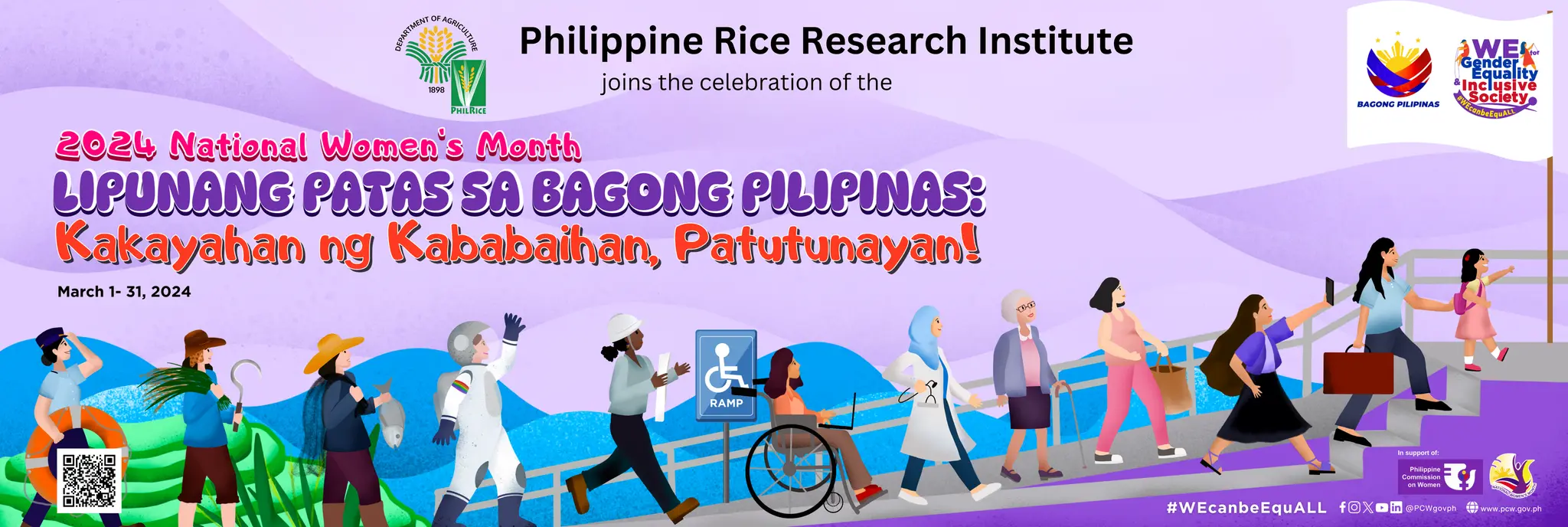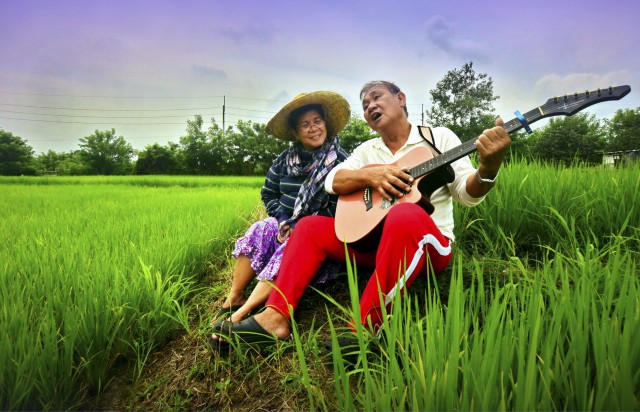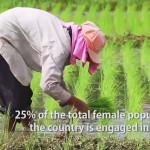
Gender equality is stated in the Magna Carta of Women as a mechanism in reducing poverty. Data from the Philippine Statistics Authority released in June 2017 showed that poverty incidence among farmers (34.3%) is higher than the general population (21.6%). At PhilRice, we ensure that our programs are equally available for the men and women in the rice sector. Inclusive participation of the men and women are considered for them to have better access to information and agricultural resources, enhance their work efficiency, and increase their farm competency.
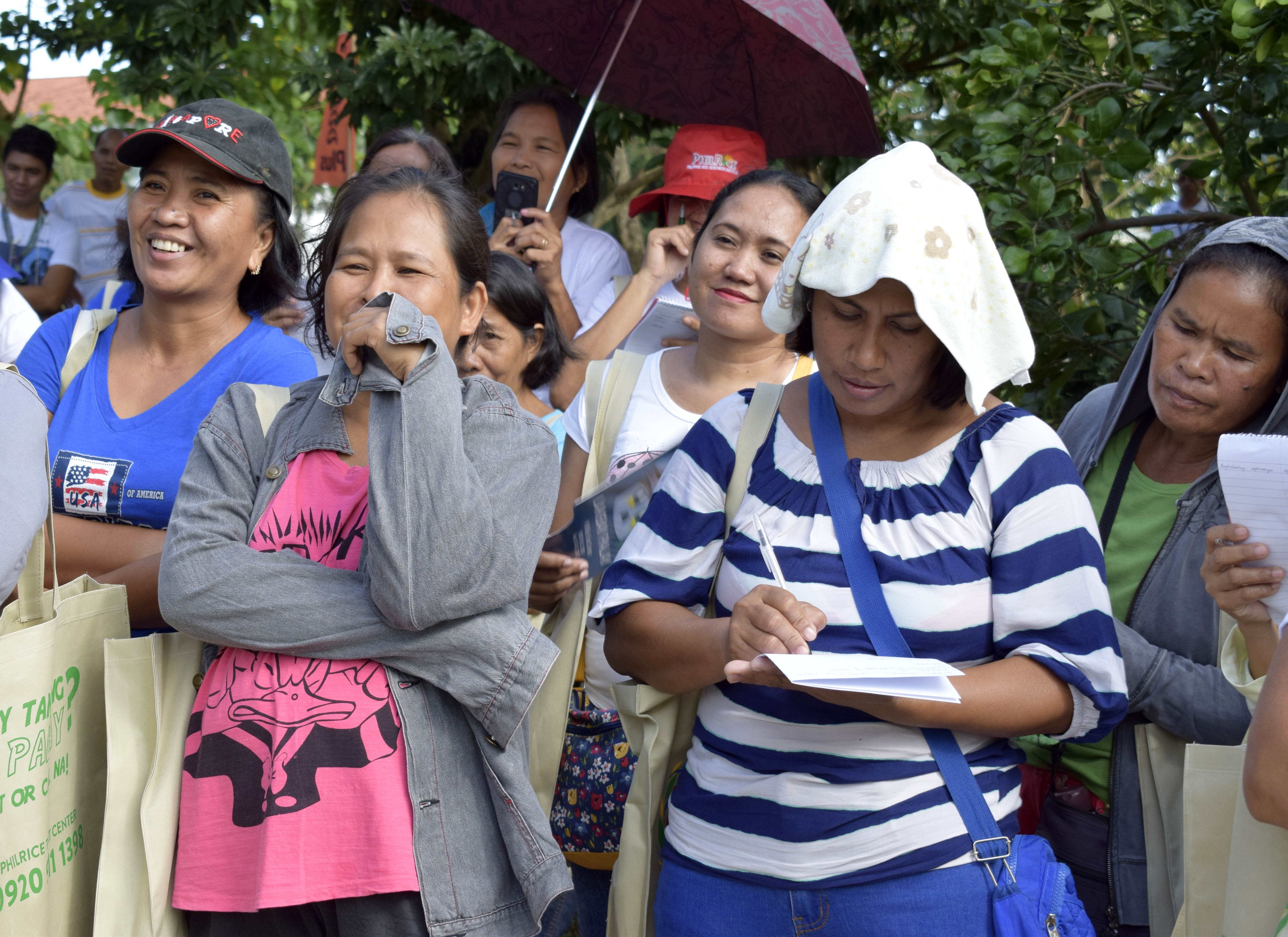
- Better access to information and agriculture resources
- Enhanced
work efficiency - Increased
competency - Towards a more gender and development-responsive Rice Science for Development

Increase in farm productivity and income start from adequate information and having good resources. In our community engagements and training activities, we ensure a good ratio between the male and female rice farmers. We develop knowledge products with balanced feature stories on successful male and female rice tillers. We also circulate our information materials in areas with high interaction among farmers. Women-farmers and farmers’ wives are encouraged to attend seminars on microfinancing and enterprise development. For more details about our knowledge products, kindly contact the Development Communication Division: (044) 456-02-85 loc 500 and the Technology Management and Services for the training programs: (044) 456 02-85 loc 510.
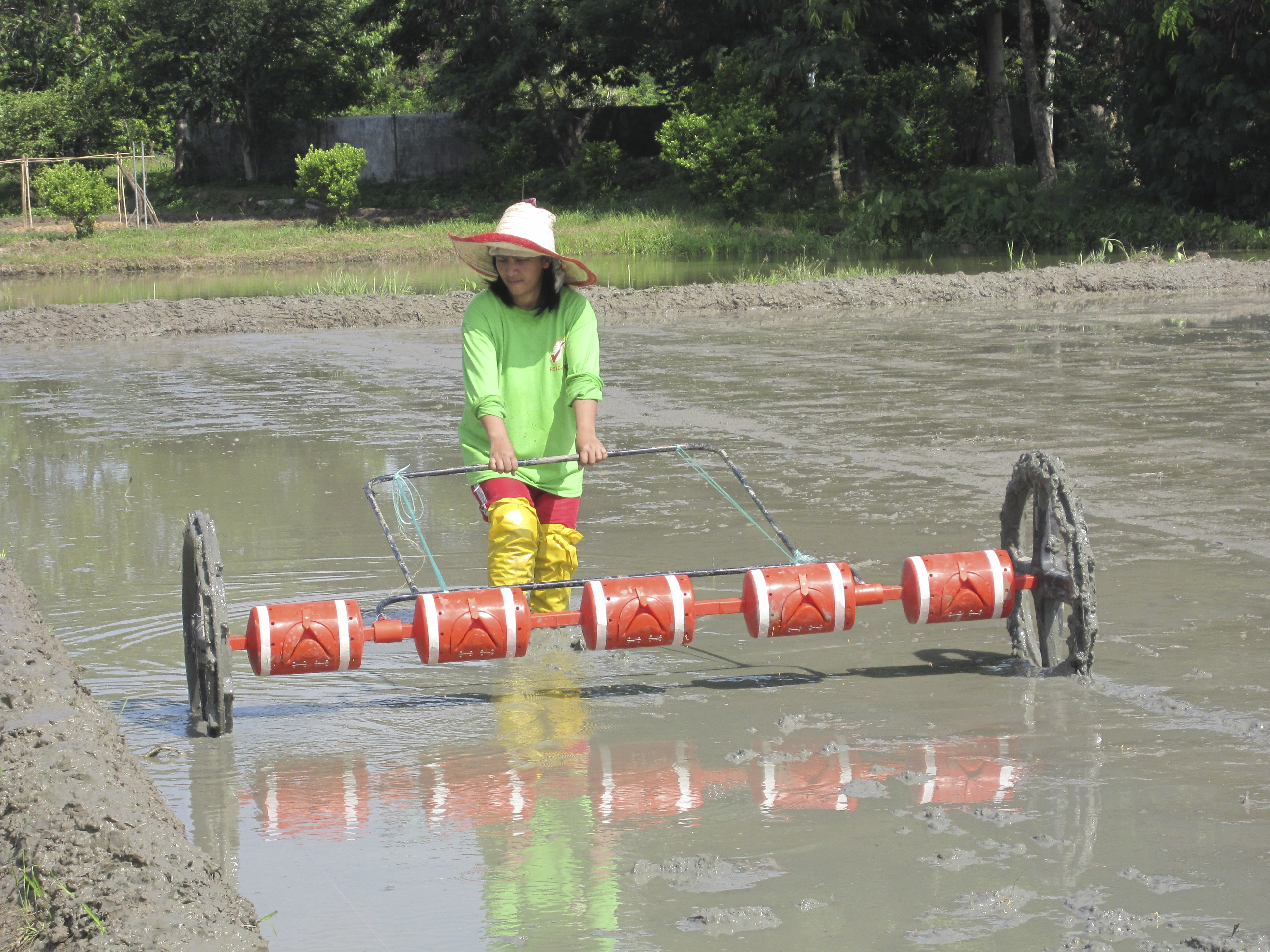
Amidst wider perception that farming is for the male, we have developed our rice technologies with the female perspective. Our farm machines such as the drum seeder, microtiller, gasifier stove, and brown rice machine can be easily operated by women as they are portable and lightweight. These gender-neutral machines are also highlighted in our technology promotion activities and exhibits. For more information about our machines, please contact the Rice Engineering and Mechanization Division: (044) 456-02-85 loc 650.
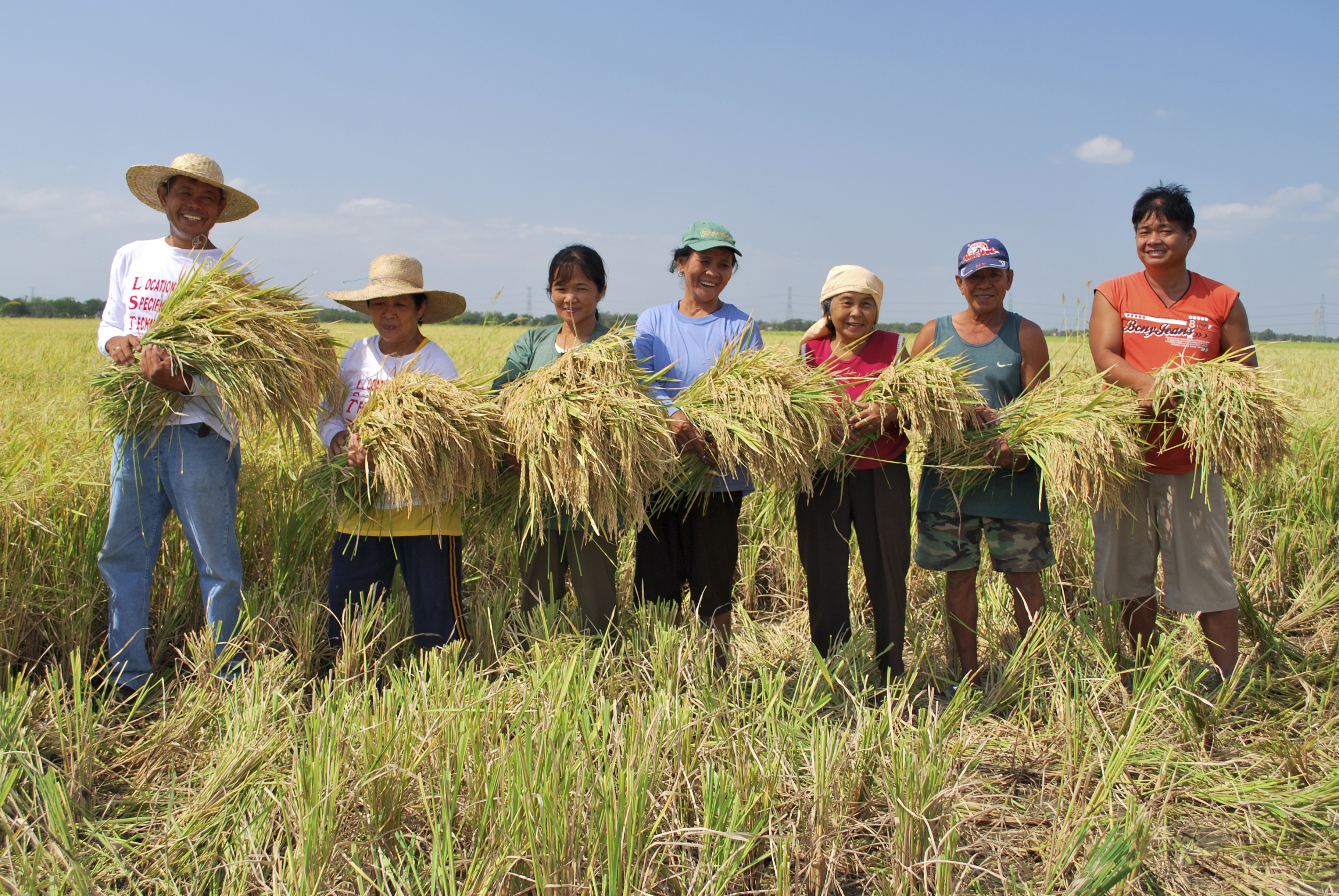
With the ASEAN integration becoming more distinct in the Philippine economy, we are helping the farmers to be more competitive by intensifying the reach of our projects. Based on data, Filipino farmers spend around P11 to produce a kilo of rice while the Thai and Vietnamese spend P8.40 and P5.60. In implementing our projects, we make sure that the number of women-farmers is proportionate to the male participants. To know more about our projects in your areas, please visit www.philrice.gov.ph.
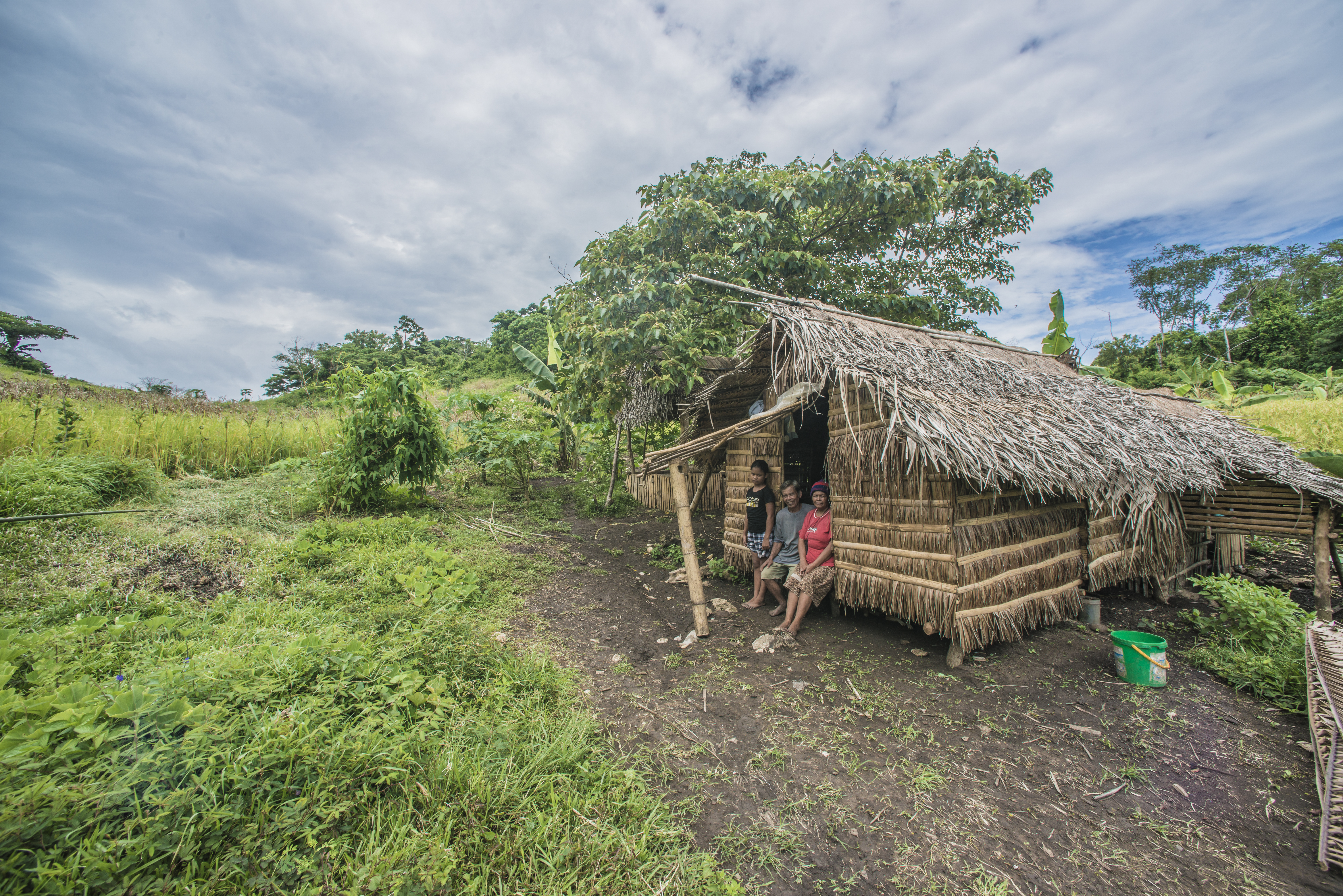
As we help improve the conditions of the rice farmers, we are strengthening our capacity so we can better support gender and development in rice sector. We are intensifying our internal awareness campaign on GAD issues and capacitating the rice workers on integrating these issues in their project proposal and in administrative processes. We ensure that GAD agenda in included in our Institutional processes and that the staff are well-versed on the Gender mainstreaming Framework. We also started to establish infrastructures that are gender-neutral and responsive to the needs of differently-abled persons, senior citizens, and pregnant women.
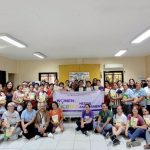 Abante, Babae! 👩🏼🌾🙋🏼♀️♀️ - Ito ang masiglang sigaw ng tatlumpu’t anim na aktibong kababaihan mula sa Pangkalahatang Samahan ng Magsasaka ng Siniloan (PASAMASI) sa ginanap na need assessment at Gender Sensitivity Workshop sa Siniloan, Laguna. Sa pagtitipon na ito, ang bawat kababaihan ay masayang nakilahok sa talakayan tungkol sa gender and development. Nagpahayag din sila ng kanilang determinasyon na […]
Abante, Babae! 👩🏼🌾🙋🏼♀️♀️ - Ito ang masiglang sigaw ng tatlumpu’t anim na aktibong kababaihan mula sa Pangkalahatang Samahan ng Magsasaka ng Siniloan (PASAMASI) sa ginanap na need assessment at Gender Sensitivity Workshop sa Siniloan, Laguna. Sa pagtitipon na ito, ang bawat kababaihan ay masayang nakilahok sa talakayan tungkol sa gender and development. Nagpahayag din sila ng kanilang determinasyon na […]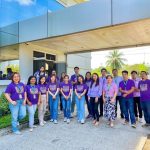 Purple Friday! - Wearing purple on Fridays of March shows solidarity and support for women and creates a visible reminder of the importance of gender equality in the workplace. Simple yet impactful, it is DA-PhilRice Isabela staffers’ way to participate and demonstrate their commitment to promoting diversity and inclusion.
Purple Friday! - Wearing purple on Fridays of March shows solidarity and support for women and creates a visible reminder of the importance of gender equality in the workplace. Simple yet impactful, it is DA-PhilRice Isabela staffers’ way to participate and demonstrate their commitment to promoting diversity and inclusion.As the country’s lead agency on rice research and development, we work on ensuring the inclusion of men and women in the agriculture agenda. We advance equal gender opportunity and participation in all aspects of rice-related development. More importantly, we advocate for the involvement of women as agents of economic and social change in the rice sector.
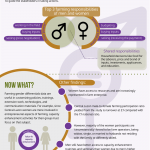 Men and women farmers of the Philippine rice granary - Read this infographic based on the 2018 Central Luzon gender research results and check how they can be used as actionable data.
Men and women farmers of the Philippine rice granary - Read this infographic based on the 2018 Central Luzon gender research results and check how they can be used as actionable data.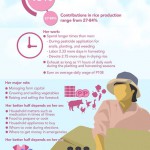 Women in agriculture - Despite equal work, Tanzo’s study on cross-country hired farm labor and wage differences showed that women-farmers earn less than the men by around P108 a day. In Nueva Ecija, the women-farmers’ wage is around P50 less than the men during crop establishment and P216 during threshing.
Women in agriculture - Despite equal work, Tanzo’s study on cross-country hired farm labor and wage differences showed that women-farmers earn less than the men by around P108 a day. In Nueva Ecija, the women-farmers’ wage is around P50 less than the men during crop establishment and P216 during threshing.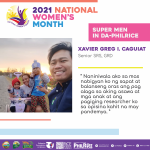 BALANSE ANG KAILANGAN NG PANDEMYA AY MALABANAN - Naniniwala ako na mas nabigyan ko ng sapat at balanseng oras ang pag-aalaga sa aking asawa at mga anak at ang pagiging researcher ko sa opisina kahit na may pandemya.
BALANSE ANG KAILANGAN NG PANDEMYA AY MALABANAN - Naniniwala ako na mas nabigyan ko ng sapat at balanseng oras ang pag-aalaga sa aking asawa at mga anak at ang pagiging researcher ko sa opisina kahit na may pandemya.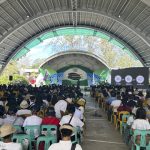 Credible rice science info amplified on social media - To address the needs of agriculture stakeholders to have easier access to science-based rice information, Philippine Rice Research Institute (PhilRice) launched new social media accounts during its Farmers Field Day dubbed as the Lakbay Palay in Science City of Muñoz, Nueva Ecija, March 20-21. The Institute’s page on YouTube (https://www.youtube.com/@philricetv/shorts) and TikTok (https://www.tiktok.com/@rice_matters) were created […]
Credible rice science info amplified on social media - To address the needs of agriculture stakeholders to have easier access to science-based rice information, Philippine Rice Research Institute (PhilRice) launched new social media accounts during its Farmers Field Day dubbed as the Lakbay Palay in Science City of Muñoz, Nueva Ecija, March 20-21. The Institute’s page on YouTube (https://www.youtube.com/@philricetv/shorts) and TikTok (https://www.tiktok.com/@rice_matters) were created […]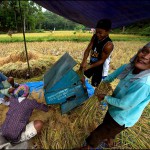 The Woman of Rice - The woman of rice, strong and determined, completes her day balancing farm work and domestic chores. On ordinary days, she invests an average of 7 hours; she works for 11 hours during planting and harvestings days.
The Woman of Rice - The woman of rice, strong and determined, completes her day balancing farm work and domestic chores. On ordinary days, she invests an average of 7 hours; she works for 11 hours during planting and harvestings days. Gender Mainstreaming in Philippine Rice Research and Development - This paper explored the impetus for and processes of change as implemented by Philippine Rice Research Institute (PhilRice) in the four major entry points in gender mainstreaming framework (GMEF), namely: policies, capacity development, enabling mechanisms, and banner projects.
Gender Mainstreaming in Philippine Rice Research and Development - This paper explored the impetus for and processes of change as implemented by Philippine Rice Research Institute (PhilRice) in the four major entry points in gender mainstreaming framework (GMEF), namely: policies, capacity development, enabling mechanisms, and banner projects.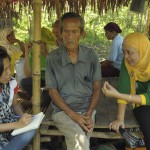 Women at work on the farm - The women-farmers in Quezon and Zamboanga del Norte are involved in more than half of the 51 farm activities from land preparation until selling of rice. Their counterpart in Pampanga, Agusan del Norte, Compostela Valley, Laguna, and Zamboanga del Sur does 3 to 6 segments of the farm work. They are mostly engaged during pulling […]
Women at work on the farm - The women-farmers in Quezon and Zamboanga del Norte are involved in more than half of the 51 farm activities from land preparation until selling of rice. Their counterpart in Pampanga, Agusan del Norte, Compostela Valley, Laguna, and Zamboanga del Sur does 3 to 6 segments of the farm work. They are mostly engaged during pulling […]
We are always ready to be of service! To know more about our Gender and Development efforts, please contact Dr. Diadem B. Gonzales-Esmero, PhilRice Gender and Development focal person, at (044) 46-0285 loc 500 or email: dg.esmero@philrice.gov.ph.



